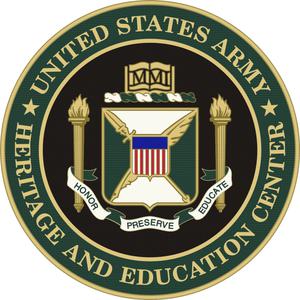
USAHEC Military History Lectures (Audio)
U.S. Army Heritage and Education Center
USAHEC Military History Lectures (Audio) hosted by U.S. Army Heritage and Education Center
- 1 hour 1 minuteConnecting Latino: Military Service and Belonging in the United States
While research has shown Latinos are highly patriotic, political rhetoric often questions their patriotism and residence in the United States. In his lecture, Dr. McGlynn will examine how Latina/Latino aspirations to demonstrate patriotism and belonging influences their experiences with military recruitment and service.
20 November 2023, 3:07 pm - 1 hour 9 minutesFeeding Washington's Army: Surviving the Valley Forge Winter of 1778
Supply and logistics are an integral component of military operations, which influences every aspect of military planning, operational art, and strategy. Among the many challenges faced by the fledgling Continental Army was establishing secure sources of supplies. That challenge came on top of developing effective and efficient lines of communication, creating functional and reliable transportation systems, finding reliable and secure logistical bases, and successfully managing what was often an ad-hoc and improvised supply and logistical system.
In his most recent book “Feeding Washington's Army: Surviving the Valley Forge Winter of 1778”, U.S. Army War College professor Dr. Ricardo Herrera outlines how this system catastrophically failed at Valley Forge during the winter of 1777-1778. Dr. Herrera discusses the causes of this failure; and how Washington and his logisticians overcame it to enable the Continental Army to fight the British army to a standstill at Monmouth that spring.
9 November 2023, 7:39 pm - 1 hour 35 minutesMeade at Gettysburg: A Study in Command
Although he took command of the Army of the Potomac only three days before the first shots were fired at Gettysburg, Union general George G. Meade guided his forces to victory in the Civil War's most pivotal battle. Commentators often dismiss Meade when discussing the great leaders of the Civil War. In this lecture historian, Kent Masterson Brown draws on an expansive archive to reappraise Meade's leadership during the Battle of Gettysburg. Using Meade's published and unpublished papers alongside diaries, letters, and memoirs of fellow officers and enlisted men, Brown highlights how Meade's rapid advance of the army to Gettysburg on July 1, his tactical control and coordination of the army in the desperate fighting on July 2, and his determination to hold his positions on July 3 insured victory.
14 September 2023, 5:57 pm - 1 hour 9 minutesMilitary History for the Modern Strategist: America’s Major Wars Since 1861
Military expert Dr. Michael O’Hanlon examines America’s major conflicts since the mid-1800s: the Civil War, the two World Wars, Korea, Vietnam, Iraq, and Afghanistan. O’Hanlon addresses profound questions. How successful has the United States been when it waged these wars? Were the wars avoidable? Did America’s leaders know what they were getting into when they committed to war? And what lessons does history offer for future leaders contemplating war? —including the prospects for avoiding war in the first place.
21 August 2023, 7:47 pm - 1 hour 21 minutesDivisions: A New History of Race and America's World War II Military
America's World War II military was a force of good. While saving the world from Nazism, it also managed to unify a famously fractious American people. At least that is the story the U.S. Army put forward through wartime propaganda during WW2, and remains popular today.
In this talk, historian and George Washington University associate professor Thomas Guglielmo offers a decidedly different view. This new perspective draws from more than a decade of extensive research and stitches together stories of race and the military; of high command and ordinary GIs; of African Americans, white Americans, Japanese Americans, and more, stories which have long been told separately. Guglielmo underscores not national unities, but racist divisions as a defining feature of America’s World War II military and of the postwar world it helped to fashion.
18 May 2023, 8:03 pm - 1 hour 16 minutesTactical Arrogance: British Military Disasters In The Wilderness, 1755-1777
Defeat is a possibility in almost any undertaking. Understanding how to turn failures into lessons learned is a key contributing skill to bringing about future success. In two of his recent books, Dr. David L. Preston, the General Mark W. Clark Distinguished Professor of History at The Citadel, provides a framework of how to draw constructive criticism out of defeat.
Both “Braddock’s Defeat: The Battle of the Monongahela and the Road to Revolution” and “The Other Face of Battle: America’s Forgotten Wars and the Experience of Combat” analyze key takeaways hidden behind the immediate sting of failure, and the dangers of not dedicating time to bring those lessons to light.
18 April 2023, 9:45 pm - 1 hour 3 minutesSpecial Episode: Steve Leonard and The Further Adventures of Doctrine Man
This lecture was recorded at the open house for the USAHEC's newest exhibit, “Ka-Pow Boom! Understanding the Soldier Experience through Comic and Illustrative Art.” Writer, former military strategist, and U.S. Army veteran Steve Leonard delivered a presentation on his comic series “The Further Adventures of Doctrine Man” In his presentation discussed the origins and inspiration for the iconic comic strip, and the impact it’s had on the U.S. Army.
5 April 2023, 7:23 pm - 49 minutes 50 secondsA Revolution in Dignity: Writing the Ukrainian Spirit through Fiction with Kalani Pickhart
In her award-winning novel “I Will Die In A Foreign Land”, author Kalani Pickhart offers an opportunity to connect with the human aspect of the conflict. The novel, winner of the 2022 New York Public Library Young Lions Fiction Award, lets readers experience the complex, and often intensely personal, circumstances leading up to the conflict through the stories of its main characters.
30 March 2023, 2:56 pm - 1 hour 25 secondsRespect and Authority: Dick Winters, Ronald Speirs, and the Mantle of Command
The harrowing experiences of Major Dick Winters and Lieutenant Colonel Ronald Spiers, along with their abilities to successfully lead solders, provide deep insights for anyone interested in leadership and small unit dynamics. Frederick explores the specific elements, personal and professional, which enabled Winters and Spiers to become legendary leaders.
17 February 2023, 2:31 pm - 1 hour 8 minutesThe Compleat Victory: Saratoga and the American Revolution
Lecture at the USAHEC with U.S. Army War College professor Dr. Kevin J. Weddle:
In the late summer and fall of 1777, after two years of indecisive fighting on both sides, the outcome of the American War of Independence hung in the balance. Having successfully expelled the Americans from Canada in 1776, the British were determined to end the rebellion the following year and devised what they believed a war-winning strategy, sending General John Burgoyne south to rout the Americans and take Albany. When British forces captured Fort Ticonderoga with unexpected ease in July of 1777, it looked as if it was a matter of time before they would break the rebellion in the North. Less than three and a half months later, however, a combination of the Continental Army and Militia forces, commanded by Major General Horatio Gates and inspired by the heroics of Benedict Arnold, forced Burgoyne to surrender his entire army. The American victory stunned the world and changed the course of the war.
23 November 2022, 4:37 pm - 59 minutes 50 secondsThe Allure of Battle: A History of How Wars Have Been Won and Lost
In the lecture Dr. Nolan will discusses the misconception that major battles determine clear-cut outcomes of wars, questioning the decisive power of even the most lopsided battles and debunking the concept of prodigies and geniuses of military strategy.
14 October 2022, 7:29 pm - More Episodes? Get the App
Your feedback is valuable to us. Should you encounter any bugs, glitches, lack of functionality or other problems, please email us on [email protected] or join Moon.FM Telegram Group where you can talk directly to the dev team who are happy to answer any queries.
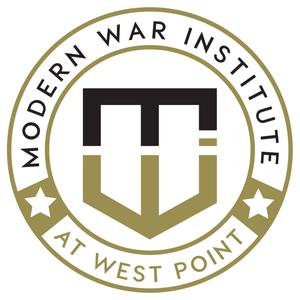 Modern War Institute
Modern War Institute
 The Spear
The Spear
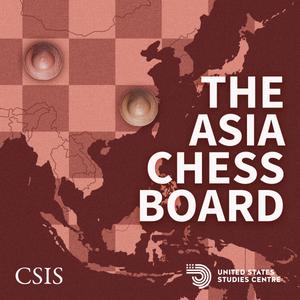 The Asia Chessboard
The Asia Chessboard
 Irregular Warfare Podcast
Irregular Warfare Podcast
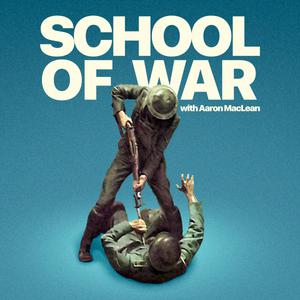 School of War
School of War
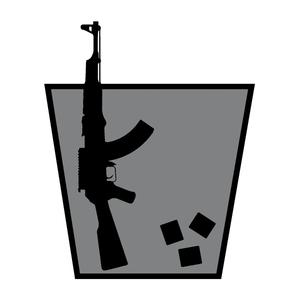 War on the Rocks
War on the Rocks